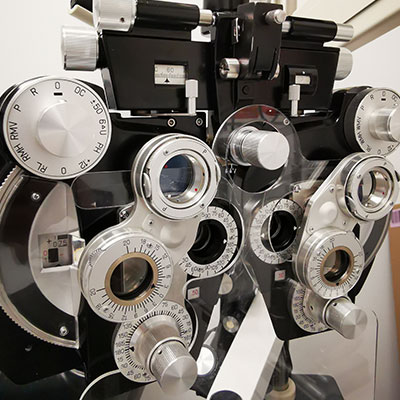Eye Test Brampton
Ready to book a complete eye test?
Eye test brampton near me Why you need it?
A complete or comprehensive eye exam is a test that includes vision assessments, as well as the external and internal structure of the eye
Vision is only one part of your complete eye health
It is crucial to regularly have eye exams whether or not you put on glasses or contact lenses, even if your vision is sharp. The eye exam can spot problems that your eyes may be suffering from. We recommend that you take a comprehensive eye examination to ensure that your eyes are working well.
In a thorough eye examination, dilatory eye drops are used to simplify the viewing of the rear portion of the eye called the retina and the optic nerve head, which sends visual signals to the brain.
Comprehensive eye examinations include assessment of visual acuity, periphery, depth perception, eye control and other functions that can influence the vision and eye safety (as clearly seen by the eye at various distances).
Besides, necessary tests for eye disorders, such as macular degeneration, macular dystrophy, and glaucoma, we conduct simple tests.

OHIP (Ontario Health Insurance Plan):
OHIP covers the price of one major eye exam (for vision and general eye health) every year, in addition to minor assessments that you need if you are either 19 years and younger (children) or 65 years and older (seniors). If you are an adult aged 20 to 64 years, you are no longer eligible for eye examinations, as of Nov 1st, 2004. Nevertheless, adults with certain medical conditions; such as diabetes, glaucoma, retinal disease, corneal disease, amblyopia, strabismus, and visually significant cataracts are OHIP covered for a complete eye exam every 12 months. Note: Diabetic and glaucoma patients should bring their medications or a pharmacy print out that shows their prescriptions to the eye exam.)
Brampton Eyecare Why you should visit?
Modern diagnostic tools to perform comprehensive eye examinations
Total eye assessments are the best way to prevent future vision loss when it comes to preventive health care. Our eye doctors will check for early signs of eye disease that are generally symptomless.
In our Brampton office, we treat every patient as a valued individual. Our eye doctors will meet you and customize your eye assessment to suit your unique vision and health needs.
Don't wait — contact us today to book your comprehensive exam with one of our qualified, caring optometrists in our Brampton office.
optometrist brampton What can an optometrist do to improve eye health awareness?
Mac & Co EYECARE is one of the foremost optometrists and eyewear retailers in Brampton. We are committed to helping our patients with the highest standard of eye health and vision care. We also take care to augment the awareness and understanding of optometrists' role in safeguarding patients' health.
There is a common misunderstanding that if people see clearly, then it means their eyes must be healthy. In reality, many severe and sight-threatening eye diseases do not depict early warning symptoms. Optometrists have the skills to detect many of the threatening eye conditions in the early stages.
The Optometrists at Mac & Co EYECARE are quick to explain your eye exam results, report your conditions, describe your options, and hear your eye care needs. We encourage patients to ask questions so that we can monitor, diagnose, and treat their potential vision problems.
Why Should You Take the Eye Exam? What Will Be Asked Before the Test?
A comprehensive eye exam can do more than determine how you can see from a distance and which lens prescription or glasses will give you the best possible vision. If you have not taken an eye examination before or are visiting the optometrist for the first time, you will be asked:
- Questions about your medical history.
- Your family's medical history.
- Vision problems you may have previously suffered.
eye examination What to expect
Case History - Preliminary Testing - Visual Acuity - Binocularity - Ocular Health
About: Dr. William Poncho
Dr. William Poncho graduated from the University of Waterloo in 1985 with a degree in Optometry and a Bachelor of Science. He owned and operated his clinic in Brampton for over 25 years, making him one of Brampton's most trusted optometrists. In 2020 he decided to join forces with Mac & Co Eyecare as our primary eye care doctor to continue to provide his patients with the best care possible. He enjoys watching the Raptors, playing golf and spending time with his two beautiful daughters in his free time.
Schedule your eye exam with Dr. Poncho.
eye exam brampton Frequently Asked Questions
Some Answers to the most asked questions about eye exams and eye health

